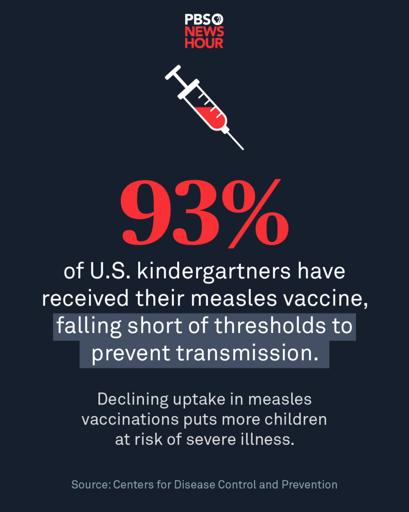Severe Rise in Measles Cases Across the U.S.
As of June 6, 2025, the United States has reported a staggering 1,168 confirmed cases of measles across 33 states, according to the latest data from the Centers for Disease Control and Prevention (CDC). This figure represents a dramatic increase from last year's total of 285 cases, highlighting a surge exacerbated by misinformation surrounding vaccination. With 17 outbreaks already recorded this year and 89% ofcases linked to these outbreaks, the urgency for effective public health interventions is clear.
The spike in cases is particularly alarming, with 935 of those confirmed occurring since May 1 alone. While many cases can be traced back to localized outbreaks, the overarching issue appears to stem from widespread vaccine misinformation that has taken hold in various communities.
Misinformation's Role in the Outbreak
Despite the proven effectiveness of vaccines in preventing diseases like measles, a wave of baseless conspiracy theories has gained traction, falsely portraying vaccines as dangerous or unnecessary. Claims that vaccines are “trackers” or that they can lead to neurological disorders have contributed to a climate of skepticism, pushing individuals to avoid routine vaccinations.
This misinformation has found support not only in social media but also from public figures, complicating efforts to safeguard public health. Notably, individuals in prominent government positions have echoed these damaging narratives, further eroding public trust in scientific recommendations.
Historical Context and Current Legislative Opportunities
Reflecting on past outbreaks, such as the one in 2019 that sickened over 1,000 individuals in New York state, it is essential to acknowledge that successful legislative measures have previously been implemented to bolster vaccination laws. In response, the New York legislature quickly passed laws tightening vaccination requirements for schoolchildren, averting a full-blown public health crisis.
As we face the current wave of measles cases, it is imperative that New York acts decisively. The final weeks of the legislative session provide a critical window to pursue new vaccine legislation aimed at curbing this dangerous trend. The responsibility lies in the hands of lawmakers to act boldly and protect vulnerable populations, including infants and immunocompromised individuals who cannot receive vaccinations.
The Importance of Herd Immunity
Herd immunity relies on a significant percentage of the population to be vaccinated, safeguarding those who are unable to protect themselves. A drop in vaccination rates endangers entire communities, highlighting the importance of collective responsibility in public health.
Ultimately, it is the role of state and local leaders to advocate for vaccines and dispel harmful misinformation through education and outreach. With powerful stakes at play, including the health of children and broader communities, it is critical that New York and other states recommit themselves to creating robust immunization policies.
Global Context and Broader Implications
The situation is not confined to the United States; Canada is also grappling with an outbreak driven by low vaccination rates, resulting in surge cases and tragic outcomes. The Public Health Agency of Canada recently reported alarming figures, including a measles-associated death of a premature infant born to an unvaccinated mother.
This alarming trend reflects a growing global concern as measles cases climb in various regions. The international community must share data and strategies in combating the misinformation that underpins vaccine hesitancy.
Conclusion
As measles cases continue to rise, the urgency for action has never been more pressing. Stakeholders from state health departments to legislators must work in unison to ensure that vaccine misinformation is effectively countered and the populace is educated on the benefits of vaccination. The time to act is now, for the protection of our children, our communities, and our futures.
Bias Analysis
Key Questions About This Article




